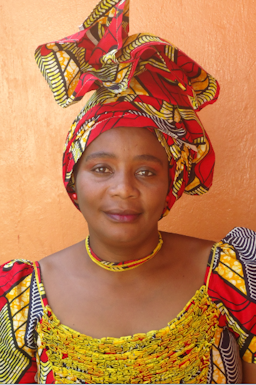Access to the right of expression in DR Congo
Feb 25, 2020
Story
Access to the right of expression in DR Congo
To date, almost all African countries are members of the UN and as such, all joined Universal Declaration of Human Rights and the African Charter of Human Rights and Peoples of June 26, 1981, which reads in section 9.2: \"Everyone has the right to information.''
Everyone has the right to express and disseminate his opinions within the law and regulations. \" DR Congo ranks 151st place (out of 180 countries) in the world ranking of freedom of the press in 2014, Reporters without Borders.
\"The Constitution of the Democratic Republic of Congo while\" reaffirming adherence and commitment to the Universal Declaration of Human Rights and Peoples, the United Nations Conventions on Children's Rights and the Rights Women, particularly the goal of gender parity and gender representation in the institutions of the country and the international instruments for the protection and promotion of human rights \"(Preamble), provides in Article 23: \"Everyone has the right to freedom of expression.
Unfortunately remains theoretical democracy in this country where anyone who criticizes poor governance by the powers that gets into problems.
Disregard and contempt for human rights have resulted in barbarous acts which have outraged the conscience of mankind, and the advent of a world in which human beings shall enjoy freedom of speech and belief and freedom from fear and want has been proclaimed as the highest aspiration of man.
It is as if justice and the Third Republic security services were still nostalgic of the strongest time of the ‘’Popular Movement for the Revolution’’: state - party, which did not tolerate contradiction and whose person was sacred Guide.
Since 2006, every honest Congolese is able to cite at least a murdered journalist, a media outlet closed or suspended, a peaceful opposition demonstration violently repressed, defenders of human rights or citizens arraigned imprisoned for their opinions.
Far from being empty words, just to beautify the constitutional and legal texts, these sentences are, in truly democratic countries, yet the right to freedom of expression means that States must \"respect\" the free expression and does not hinder it.
\"The free communication of thoughts and opinions is one of the most precious rights of man: any citizen may therefore speak, write and publish freely, subject to responsibility for the abuse of this freedom in the cases determined by law. \"
We have always asked the question whether the freedom of expression, as indeed all fundamental freedoms, has the same meaning and enjoys the same consideration in Africa and DR Congo than in all the countries that make it worth the civilized world and an essential component of democracy.
Whereas disregard and contempt for human rights have resulted in barbarous acts which have outraged the conscience of mankind, and the advent of a world in which human beings shall enjoy freedom of speech and belief and freedom from fear and want has been proclaimed as the highest aspiration of man.
We believe that our leaders should have the culture of tolerance, contradiction to bring forth the truth instead of growing hatred.
Yet Article 19 of the declaration is, meanwhile, devoted to freedom of expression in these terms: \"Everyone has the right to freedom of expression, which includes the right not to be to hold opinions and to seek, receive and impart, regardless of frontiers, information and ideas through any means of expression whatsoever.»
Far from being empty words, just to beautify the constitutional and legal texts, these sentences are, in truly democratic countries, living realities that allow opponents and citizens in general to participate in the governance of their country through debate , criticism, demonstrations
In my community \"tribe Shi» of South Kivu :
Giving women a voice
We should have your voice. Men do not support our problems.
When inheritance is not considered a widow nor her daughters were only gives voice to the families of boys and if the deceased did not have a boy child is resorted in the family of the deceased is the paternal uncle who is scheduled to speak to distribute the property left by the deceased.
Based on these realities on the right to freedom of expression that is the theory, women especially those living in rural areas still suffer discrimination of expression.
In addition, when a father wants to give his daughter in marriage we organize a discussion of the dowry ceremony where one can find only the father, maternal uncle, paternal uncle, and sometimes the mother of the girl, but that should not give his opinion on the dowry of his daughter, we do not allude to the girl must marry that is to say, it does not assist in this speech.
Thus, we thank the SAFECO Center / Mama Shujaa based in Bukavu City in Eastern DR Congo for giving us this opportunity to have a framework, access to the internet, and the site for World Pulse make our voices heard across the world.
This gesture is commendable how the empowerment and development of women.
Odette IRANGA Lushayire
Coordinator
PEUPLES SANS VOIX (Voiceless Peoples)
Bukavu ,DRCongo
Email : irangaodet@gmail.com




